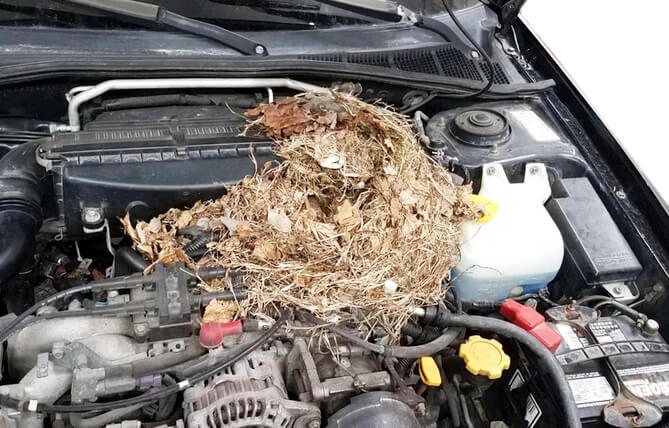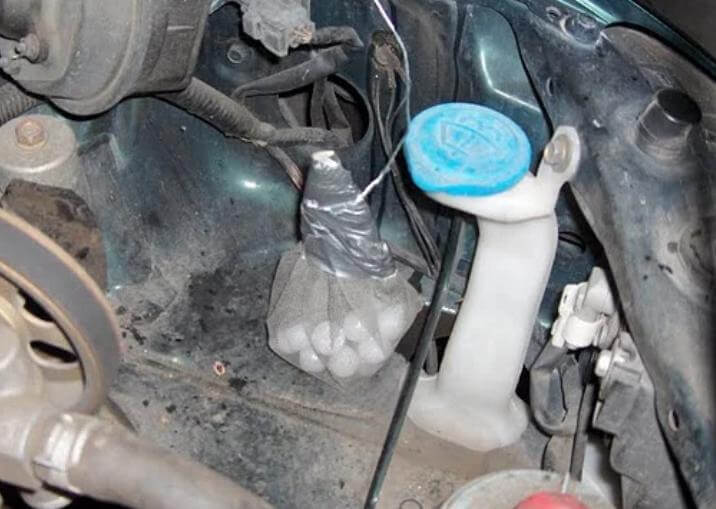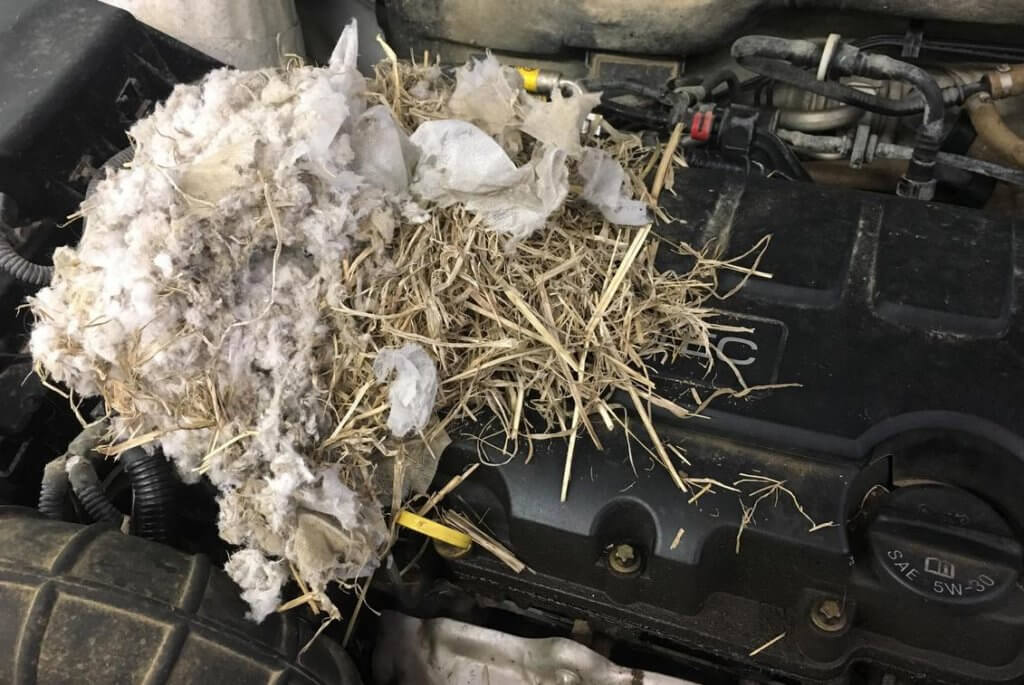Rodent Repellent for Cars: Preventing Wiring Damage
The Best Rodent Repellent For Cars and Trucks
Rodents chewing on automotive wires is a problem that has plagued vehicle owners for decades. The damage caused by these tiny creatures can lead to significant repair costs, not to mention the frustration of dealing with an unexpected breakdown. But why do rodents, like mice, rats, and squirrels, chew on car wires in the first place? This article explores the reasons behind this behavior, the impact it can have on your vehicle, and strategies to prevent rodents from turning your car into their next snack.
First, understand why rodents like your engine and interior spaces
It’s not the soy based wiring insulation! It turns out that’s a myth, according to pest control company Terminix and Consumer Reports.

Living under your hood keeps the whole family from the elements
“Pest control company Terminix considers the temptations of tasty materials to be a myth, and instead, it blames rodent biology and their need to constantly chew, thereby preventing their teeth from growing too long. It turns out that feasting on cars is more prevalent than you might think.” — Consumer Reports
Who’s under your hood, and why they’re there
Mice, Rats, Squirrels, Chipmunks, groundhogs, opossums, and woodchucks
How to avoid attracting rodents to your car in the first place
• Park away from trash bins or natural sources of rodent food like vegetable gardens
• Don’t store any food, candy, food wrappers/containers, or dog food in your garage, car or trunk or near where you park.
• Seal gaps in your garage doors and foundation to keep critters out of your garage
• Remove sources of nesting materials like leaves, straw, rags, or patio furniture cushions.
• Don’t park for long periods in unsealed garage spaces. Move your car regularly so any critters that have started a home in your engine have an incentive to get out quickly.
• Check under your hood on a regular basis and remove any signs of rodent nests
Place rodent traps around the garage to reduce the population
Rodent repellents for your engine
Moth balls as rodent repellent for your engine compartment
Purchase aluminum window screen. Form it into a pouch. Fill it with mothballs and secure several pouches around the engine compartment around the perimeter, away from moving parts. And NEVER place moth balls anywhere inside the passenger cabin. The active ingredients in mothballs are either naphthalene or paradichlorobenzene. Each can cause negative health effects if inhaled long enough.
For storage, placing mothballs under the hood can help. (Don’t use them inside the car, or you’ll be stuck with that awful smell.)

Dryer Sheets: Forget About It, they don’t work as a rodent deterrent
Many Internet posts say to place dryer sheets in your engine compartment. They don’t work to repel rodents. On the contrary, they provide a nice smelling bedding material. In other words, don’t waste your time or money on dryer sheets under the hood. They don’t work.

Pepper spray, Peppermint Oil, and rodent repellent sprays do work to keep rodents out of your car
Peppermint oil and cayenne pepper are reported to deter rodents. Note that spray products will need to be reapplied routinely because they can wear away and rinse off. Soak cotton balls in peppermint oil, wrap the balls in aluminum screen material, and place them around wiring harnesses. If you use sprays, retreat often because they don’t last long.
Protect engine compartment wires from being chewed
The sprays help, but there are two more effective ways. One is expensive; the other is labor-intensive.
Honda rodent deterrent tape 4019-2317 prevents wire damage from rodents
Purchase Honda rodent deterrent tape 4019-2317. It’s electrical tape impregnated with spicy capsaicin. Buy the tape online from a Honda dealer. The price is about $45 for a 20-meter roll. Wrap it around the wires in the engine compartment.
Aluminum screen wrap to prevent rodents from chewing wires
Purchase an ordinary aluminum window screen from a hardware store and wrap it around low-voltage wiring harnesses in your engine compartment.
For additional tips on keeping rodents out of your car, see this post
©, 2022 Rick Muscoplat
Posted on by Rick Muscoplat
